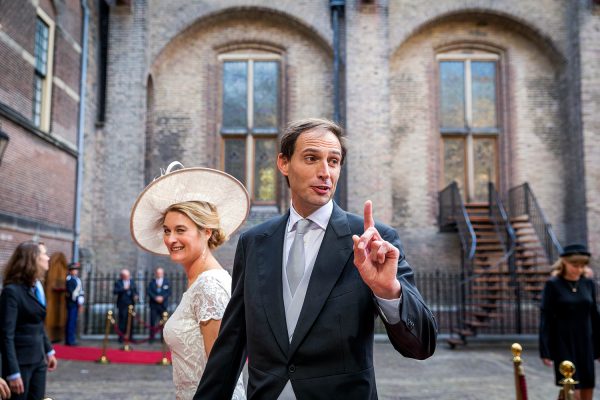
Dutch finance minister Wopke Hoekstra is back in contention for the leadership of the country’s ruling Christian Democratic Appeal following the unexpected resignation of Hugo de Jonge.
Hopes are that Hoekstra will be able to succeed where the last three leaders of his party failed: to unseat the liberal Mark Rutte as prime minister.
The Christian Democrats are currently a junior party in Rutte’s third coalition government since 2010.
Elections are due in March.
Doubts
De Jonge, who is also health minister, said it was impossible to combine leading his party with managing the response to the outbreak of COVID-19 in the Netherlands, which has so far killed 9,775 people.
De Jonge’s responsibilities include allocating medical resources between hospitals and nursing homes and preparing a national vaccination plan.
There were other doubts about De Jonge’s leadership.
He only narrowly defeated backbencher Pieter Omzigt in a primary in July. Hoekstra, who is more popular than both, did not compete.
The Christian Democrats have not moved up in the polls since and are stuck at 9-11 percent, which would give them fourteen to seventeen out of 150 seats in parliament. Rutte’s liberal party (of which I’m a member) is faraway in first place with 25-28 percent support.
De Telegraaf reported a week ago that Christian Democrats were growing restless with one unnamed senior party member complaining, “We’re heading toward the abyss.”
Moderate
The Christian Democrats have been part of almost every Dutch government since the end of the Second World War. They led eleven out of sixteen cabinets in that period.
The party’s support collapsed in 2010, when Rutte’s liberals supplanted it as the main party of the right.
De Jonge, a moderate, was seen as more likely to draw voters away from the liberals than the conservative Omzigt, although the latter would have appealed more to supporters of the since-imploded Forum for Democracy, a Euroskeptic party.
Hoekstra, who has been dubbed “Mr No” for resisting debt-sharing in the EU, could appeal to both groups.
He ruled out standing for the leadership earlier this year, calling himself “more of an administrator than a professional politician.”
We’ll find out in the next few days if he still feels that way.
White knight
But even Hoekstra is unlikely to be the white knight Christian Democrats are hoping for. Longer-term trends have conspired against them.
Catholic voters in the south, for many decades the backbone of the party, have warmed to the anti-immigrant far right. Left-wing Christians were appalled when the party accepted parliamentary support from the same far right in 2010-12 and have an alternative in the smaller Christian Union (which is also part of the current government). This tension, between conservative Catholics and progressive Protestants, was easier to manage when the party won elections.
They used to, when secular, middle-income voters in small cities and towns threw their weight behind the Christian Democrats to keep the left out of power.
Many of those voters have switched to Rutte.
The prime minister’s approval rating is through the roof. His party’s weakness, especially during a crisis, is that it can be perceived as too individualistic and uncaring. Hence the broadsides against liberalism from other party leaders in recent months, who argue the pandemic calls for bigger government and a renewed sense of solidarity.
The liberals have moved to the middle on key issues to preempt such attacks.
They used to abhor deficit spending. Now they are willing to let debt rise from 49 to 61 percent of GDP to avoid spending cuts. They used to argue for free trade. Now they agree to bar competition from state-owned and -backed companies from outside the EU. Rutte once complained that “windmills rotate on subsidies.” Now he supports green energy subsidies and a carbon tax. Only four years ago, his party campaigned against an unemployment insurance mandate for freelancers. Now it supports one.
The policy changes bring the liberals closer to the Christian Democrats and other parties in the center. Which should make it easier to form the next government, but also makes it harder for the Christian Democrats to differentiate themselves on the center-right.
